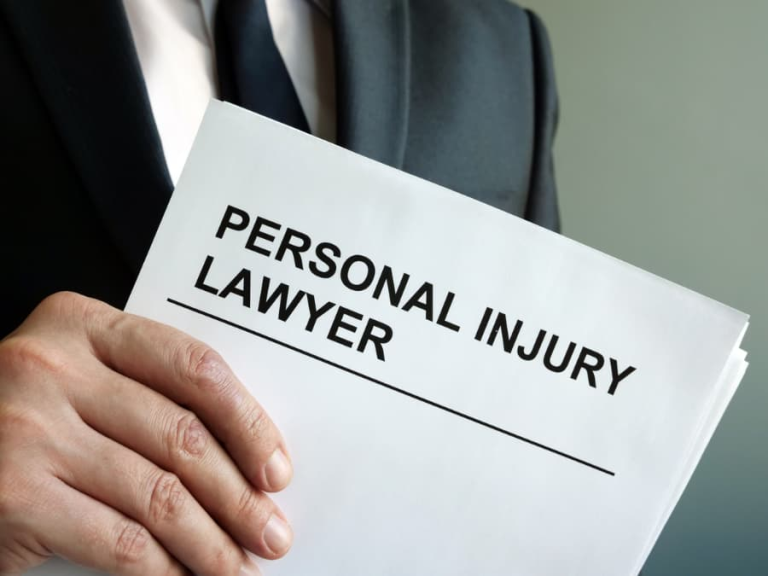A Step-by-Step Guide to Filing a Car Accident Claim
If you have been involved in a car accident, you must be horrified and scared. While these feelings of fear are inevitable, there are also some things you will need to do right after the accident, especially if you have been injured due to someone else’s negligence.
The most important thing is to seek compensation for your losses, both regarding health and finances. To do this, you will need to file a car accident claim with your insurance company and the party responsible for the accident.
Below here is a step-by-step guide for you that will help you file a car accident claim. Keep reading to find out!
Ensure Safety and Get Medical Attention
Immediately after a car accident, prioritize the safety and well-being of everyone involved. If you’re able, move to a safe location away from traffic to avoid further injuries or accidents. Then, check yourself and others for injuries and call emergency services if anyone requires medical attention.
Even if you don’t feel injured, it’s crucial to seek medical evaluation as soon as possible. Some injuries, like concussions or internal bleeding, may not manifest symptoms immediately but can have serious consequences if left untreated. Document any injuries you notice, as this documentation will be important for your claim later on.
Document the Accident Scene
Gathering evidence at the accident scene is vital for supporting your claim. Use your smartphone or camera to take photographs of the vehicles involved, any visible damage, the surrounding area, and relevant road conditions.
Note the positions of the vehicles, any skid marks, traffic signs, and weather conditions. Additionally, exchange contact and insurance information with the other parties involved and collect statements from any witnesses. The more evidence you can gather at the scene, the stronger your case will be when filing a claim.
Report the Accident to Your Insurance Company
Promptly report the accident to your insurance company, providing them with accurate and detailed information about the incident. Be prepared to provide the date, time, and location of the accident, as well as a description of what happened.
It’s essential to be truthful and cooperative when communicating with your insurance company, but avoid admitting fault or speculating about the cause of the accident. Your insurer will guide you through the claims process and may assign an adjuster to investigate the claim further.
Obtain a Copy of the Police Report
If law enforcement responds to the accident scene, they will typically file a police report documenting the details of the incident. Request a copy of the police report as soon as possible, as it contains valuable information that can support your claim.
The report may include the officer’s observations, statements from witnesses, and any citations issued to the parties involved. Review the report carefully for accuracy, and notify the police department of any inaccuracies or missing information that may affect your claim.
Gather Documentation and Evidence
In addition to the evidence collected at the accident scene, gather any additional documentation that supports your claim. This may include medical records and bills related to your injuries, estimates for vehicle repairs, proof of lost wages or income resulting from the accident, and any correspondence with insurance companies or medical providers.
Organize these documents in a file or folder for easy reference throughout the claims process, and keep copies for your records. Expert attorneys and law firms are also there to provide guidance for car accident survivors in terms of managing the documentation and gathering the evidence. Make sure you partner with one to ensure timely and suitable compensation.
Evaluate Your Damages
Before filing your car accident claim, carefully evaluate the full extent of your damages to ensure you seek adequate compensation.
This includes economic damages such as medical expenses, vehicle repair costs, and lost wages, as well as non-economic damages like pain and suffering, emotional distress, and loss of enjoyment of life. Keep track of all expenses related to the accident, including receipts, invoices, and receipts, to accurately quantify your damages.
File a Claim with the At-Fault Driver’s Insurance Company
If another driver was at fault for the accident, you may file a claim with their insurance company to seek compensation for your damages. Contact the insurance company and provide them with the necessary information, including the police report, photographs, and documentation of your damages.
Be prepared to negotiate with the insurance adjuster and provide additional evidence to support your claim if necessary. Keep detailed records of all communication with the insurance company throughout the claims process.
Negotiate a Settlement
Once you’ve filed your claim, the insurance company will investigate the accident and evaluate your damages. They may offer you a settlement to resolve the claim, but it’s essential to carefully review the offer and consider whether it adequately compensates you for your losses.
If the initial offer is insufficient, don’t hesitate to negotiate with the insurance adjuster or seek assistance from a car accident attorney. Your attorney can help you assess the fairness of the offer and negotiate for a higher settlement if necessary.
Consider Hiring a Car Accident Attorney
If you encounter challenges during the claims process or believe you’re not being treated fairly by the insurance company, consider hiring a car accident attorney to represent your interests. An experienced attorney can advocate for you, negotiate with insurance adjusters on your behalf, and help you pursue legal action if necessary.
They can also provide valuable guidance and support throughout the claims process, alleviating stress and uncertainty. When choosing an attorney, look for someone with experience handling car accident claims and a track record of success in securing favorable outcomes for their clients.
They will be able to help you with everything related to your case and also guide you on how to present yourself in court to get the best possible compensation. Just be sure to hire an attorney who is knowledgeable and experienced enough so they can handle your case efficiently.







